

Take all the seeds out of the watermelon - Serve in bitesize pieces
| Created October 14, 2000 | Last Updated - November 10, 2006 |
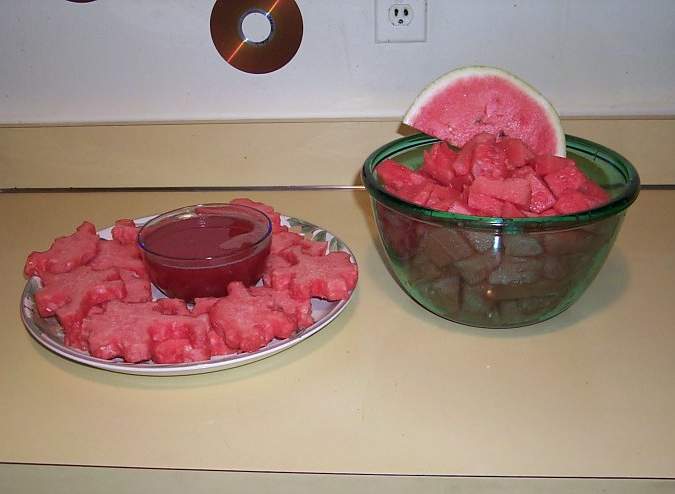
1. Cut the ends of the watermelon
2. This watermelon was late in the season.
3. After the second incission, use the knife to pry loose the section.
4. Continue to cut down the length of the melon and break off each next section.
5. This melon doesn't have as many seeds as many.
6. Continue to break sections
7. This is the last section.
8. Use a spoon, and don't be scared of wasting.
9. the seeds have been taken out and all the extra is in a bowl.
10. Slice the sections up and down, and back and forth,
11. Use the leftover rind to recover juice.
12. Cut into impressive slabs.
13. To serve, travel and save,
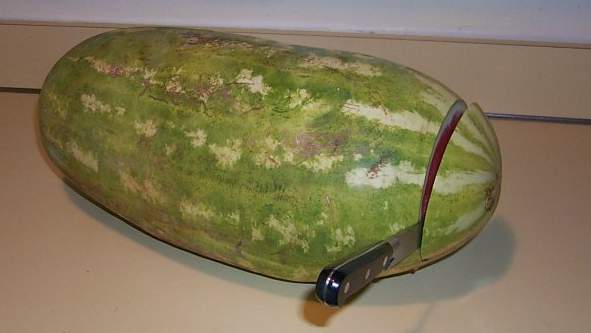
Start out with a nice watermelon.
When you tap the melon you should hear a hollow sound.
Sometimes it helps to put your ear against the melon to listen.
The patches on the rind from bugs are a good sign.
Bugs know how to pick the best melons.
Watermelons retain less pesticides than other fruits.
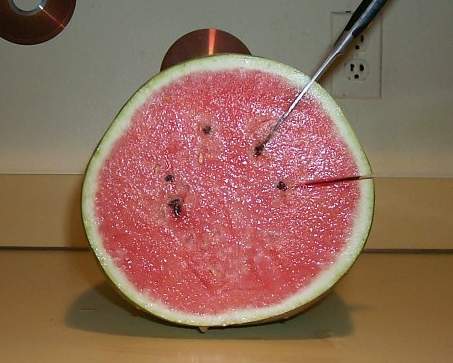
The clover like growth of seeds should be more obvious.
the seeds you see in the cross section
progagate throughout the length of the whole melon.
Slice down the whole length.
Not too deep. Just enough to where the seeds almost start
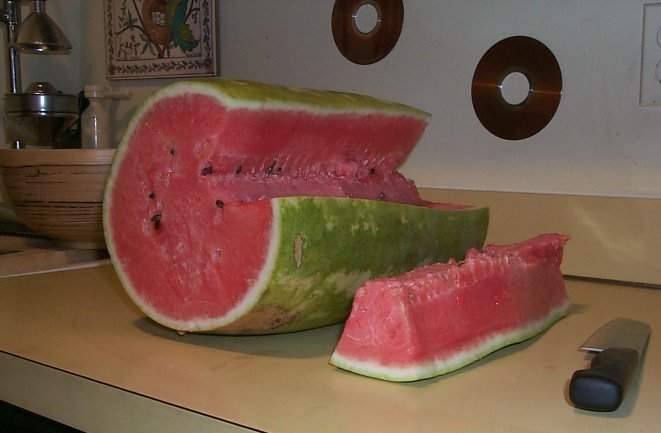
Rock it and be
gentle, so the section breaks along the seed beds.
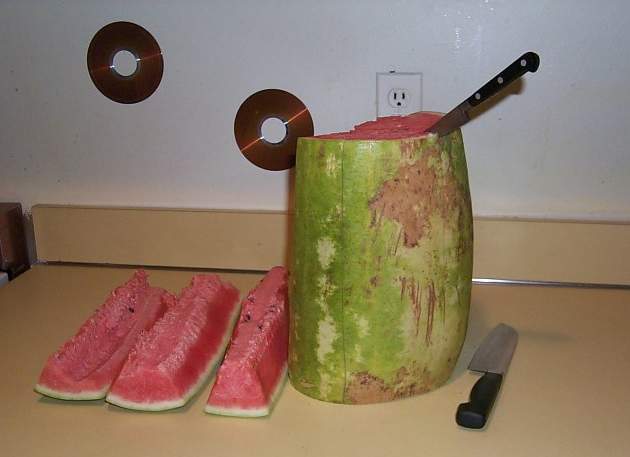
Keep looking at the front and rear cross sections to see where the seeds grow
So you know exactly where to cut
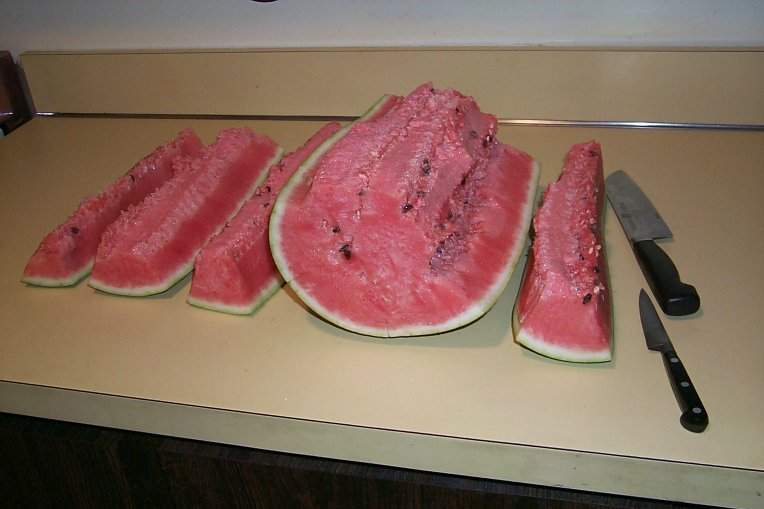
Usually they look more like starfish than clover leaf.
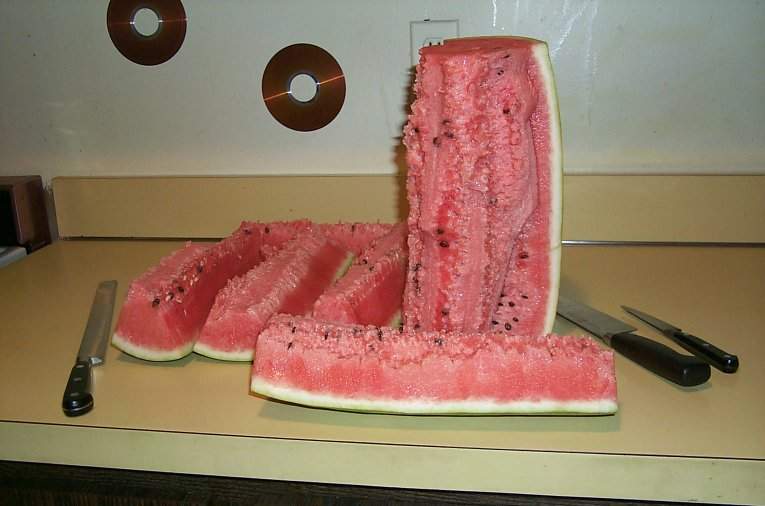
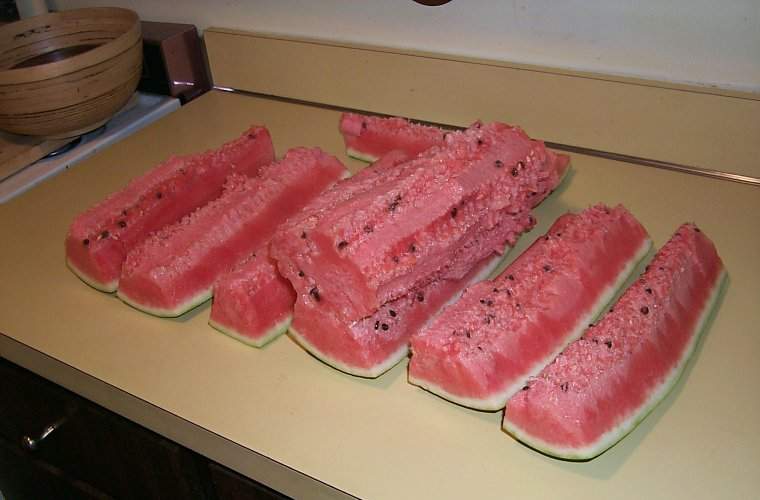
Get ready to scoop out the seeds
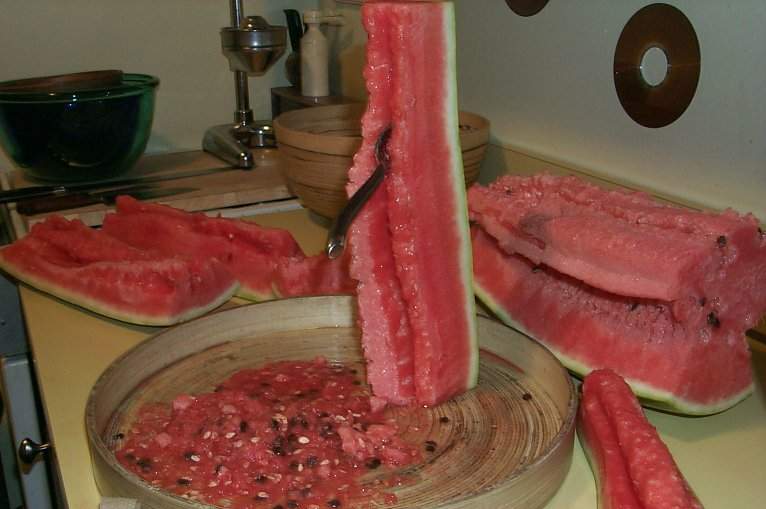
Scrape as deeply as you need to.
Do it over a surface so you can save the juice.
This is the actual fillet part
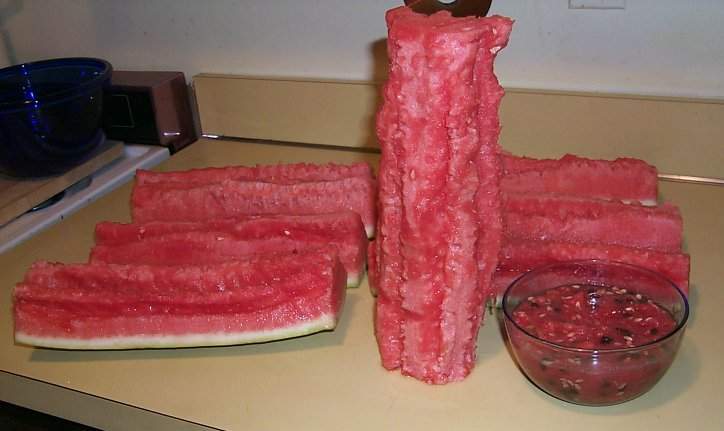
This piece is the chateaubriand of fillet of watermelon.
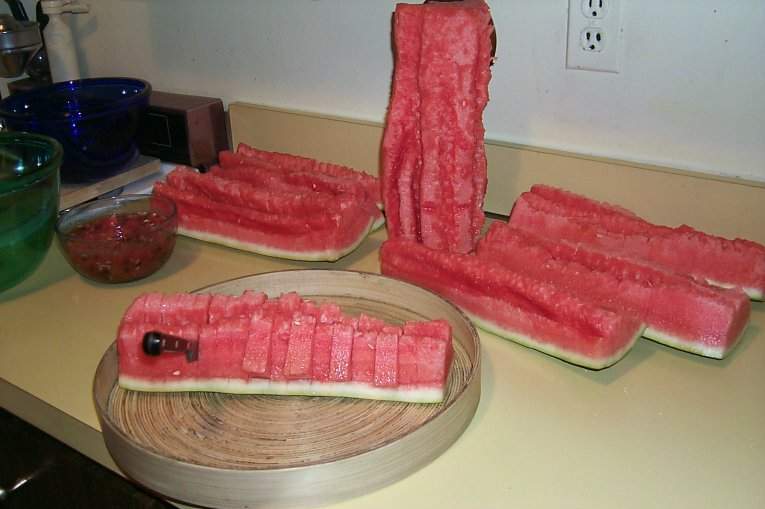
then underneath along the rind inorder to make large bitesize cubes.
Don't cut too close to the rind.
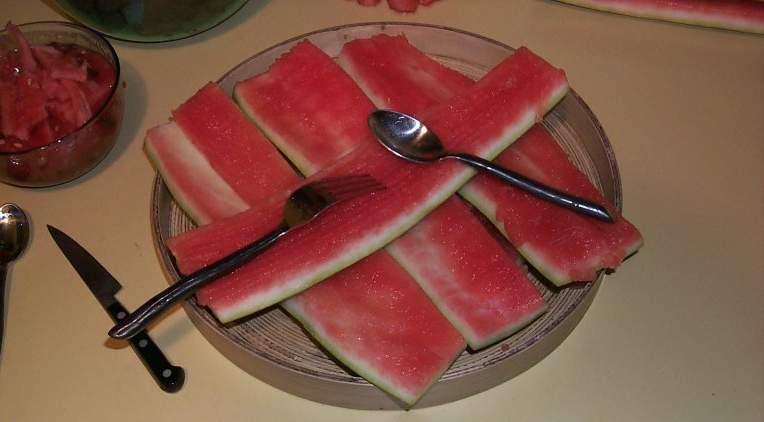
Score with a fork lengthwise
Then press a large spoon as you run down the length.
It can get messy.
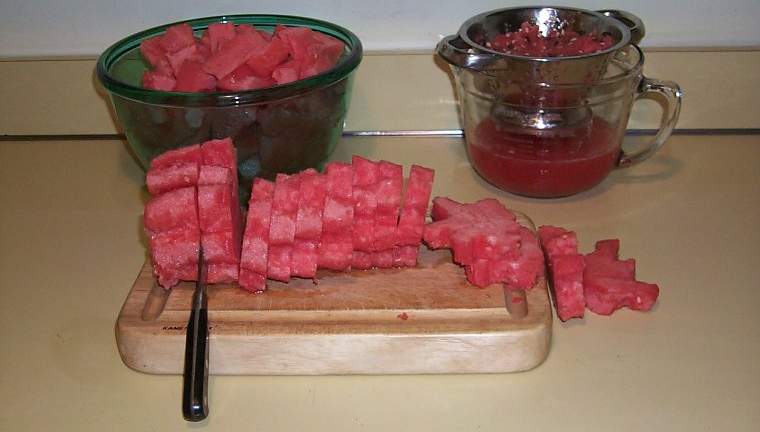
strain the juice.
Squeeze the pieces in a bowl and then press into the strainer.
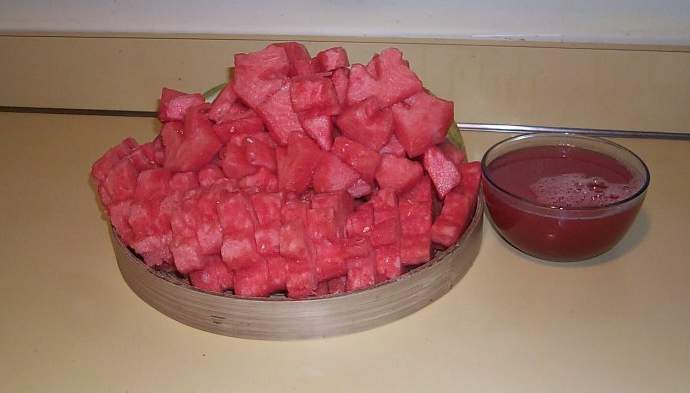
Put the watermelon into a container with the juice.
